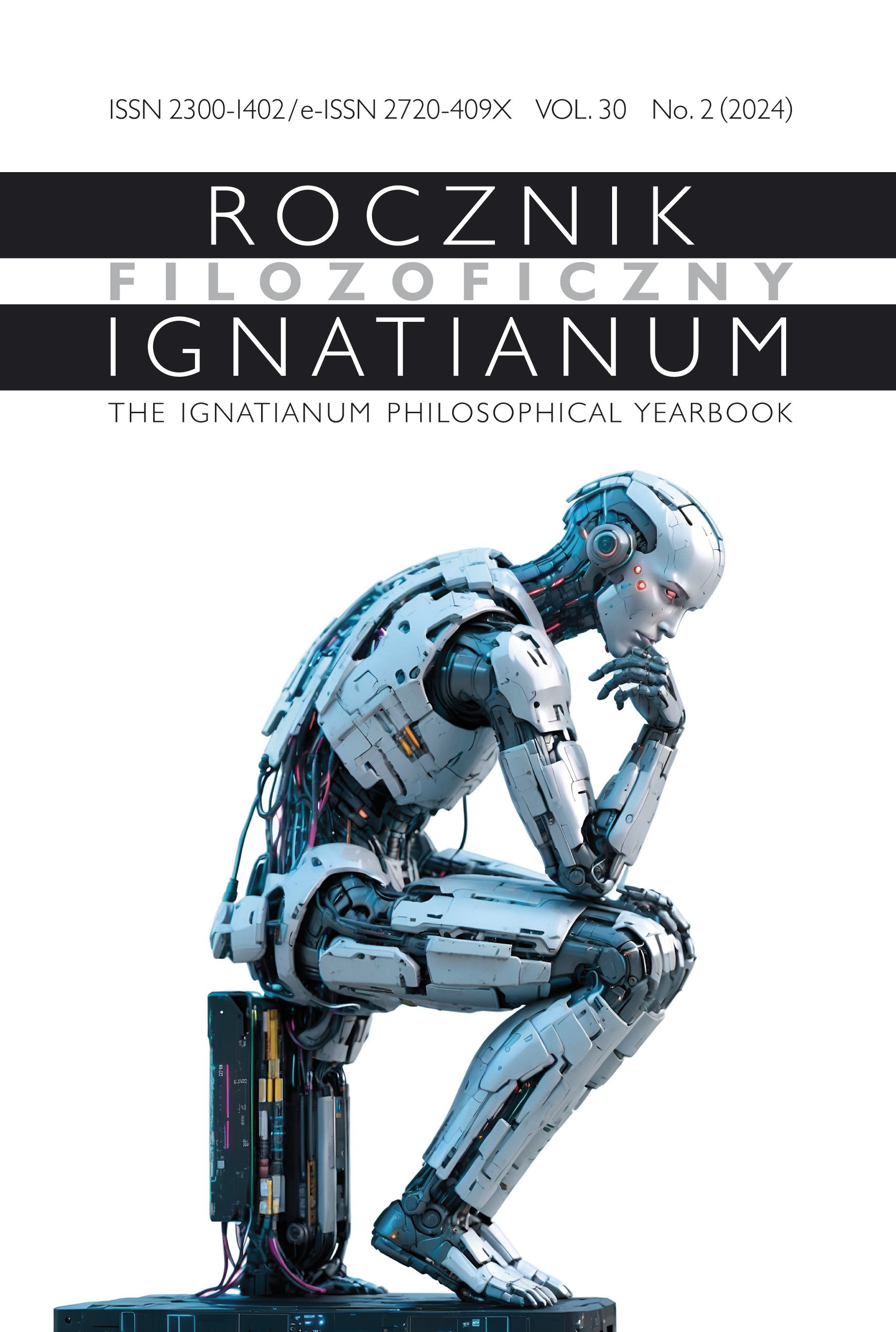Utilitarian Morality and Deontological Amoralism of Transhumanist Ideology
Abstract
The ethics of transhumanism is a utilitarian ethics. The aim of the transhumanist project of human enhancement is to increase the physical, mental and social well-being of the human being, i.e. to increase the sum of the happiness of individual and the community of which he or she is a part. The content of these considerations is to identify and describe what constitutes the ultimate basis of transhumanist ethics and, at the same time, marks the boundary beyond which transhumanist projects of human enhancement projects cannot go. We argue that this basis and at the same time the limit of moral acceptability of actions is the preservation of the personal identity of the subject. We understand this identity in the Cartesian sense, i.e. as the relation in which the subject’s self-consciousness remains to its corporeality. Transhumanist human enhancement thus becomes immoral if it can lead to the loss of the individual’s memory of past relations between his or her self-consciousness and his or her corporeality.
References
Harris John, Enhancing Evolution. The Ethical Case for Making Better People (Princeton and Oxford: Princeton University Press, 2007).
Kurzweil Ray, Nadchodzi Osobliwość. Kiedy człowiek przekroczy granice biologii, tłum. Eliza Chodkowska i Anna Nowosielska (Warszawa: Kurhaus, 2013).
More Max, List do Matki Natury, tłum. Marcin Sieńko, http://sienko.net.pl/ maxmore.html (dostęp: 29.06.2022).
Schopenhauer Arthur, O wolności ludzkiej woli, tłum. Adam Stögbauer (Kraków: Wydawnictwo Zielona Sowa, 2004).
Shaftesbury Anthony Ashley, Characteristic of Men, Manners, Opinions, Times (Cambridge: Cambridge University Press, 2001).
Bostrom Nick, „A History of Transhumanist Thought”, Journal of Evolution and Technology 14 (1) (2005): 1–25.
Bostrom Nick, „In Defense of Posthuman Dignity”, Bioethics 19 (3) (2005): 202–214.
Grabińska Teresa, „Dylematy transhumanizmu, cz. I: Ewolucja biologiczno-technokulturowa a ulepszanie człowieka”, Teologia i Moralność 17 (1) (2022): 31–44.
Grabińska Teresa, „Transhumanistyczna denaturalizacja w świetle ekologii integralnej”, Wrocławski Przegląd Teologiczny 30 (1) (2022): 277–304.
Kirchhoffer David G., „Human Dignity and Human Enhancement: A Multidimensional Approach”, Bioethics 31 (5) (2017): 375–383.
Kopania Jerzy, „Sfera etyczna etyki biznesu”, Prakseologia 126-127 (1-2) (1995): 55–61.
Kopania Jerzy, „Człowiek jako byt a człowiek jako osoba”, Archeus. Studia z bioetyki i antropologii filozoficznej 14 (2013): 79–96.
Kopania Jerzy, „Projekt udoskonalenia człowieka w świetle relacyjnej koncepcji osoby”, w: Ulepszanie moralne człowieka. Perspektywa filozoficzna, red. Piotr Duchliński, Grzegorz Hołub (Kraków: Wydawnictwo Naukowe Akademii Ignatianum, 2019), 121–153.
Kopania Jerzy, „Edukacja w perspektywie transhumanistycznej”, w: Fenomen paidei w czasach zarazy, red. Ewa Baum, Szczepan Cofta, Anna Grzegorczyk (Poznań: Wydawnictwo Naukowe UAM, 2022), 153–172.
Kopania Jerzy, „Ideologiczne oblicze transhumanizmu”, w: Transhumanizm. Wieloaspektowość zagadnienia, red. Piotr Duchliński, Grzegorz Hołub (Kraków: Wydawnictwo Naukowe Akademii Ignatianum, 2022), 125–168.
Wolniewicz Bogusław, „Parę uwag o naturze sumienia”, w: Bogusław Wolniewicz, Filozofia i wartości, t. II (Warszawa: Wydział Filozofii i Socjologii Uniwersytetu Warszawskiego 1998), 203–205.
Wolniewicz Bogusław, „Z antropologii Schopenhauera”, w: Bogusław Wolniewicz, Filozofia i wartości, t. I (Warszawa: Wydział Filozofii i Socjologii Uniwersytetu Warszawskiego 1998), 101–119.
Webster Dictionary, https://www.merriam-webster.com/dictionary/moral sense (dostęp: 30.06.2022).
Copyright (c) 2024 Ignatianum University in Cracow

This work is licensed under a Creative Commons Attribution 4.0 International License.
The Yearbook only accepts materials for publication that are free of all conflicts of interest, and that in no way involve conflicts over authorship, copyright, etc. The Editors will take action against any cases of plagiarizing, ghostwriting1, guest/honorary authorship2, etc. Where co-authored work is concerned, the Author listed first is expected to take responsibility for the submission, and is required to make clear the contributions of all of the Co-Authors involved. In the event of the publication owing its existence to funding dedicated to this purpose, this fact should be made clear: e.g. in any note of thanks/acknowledgement, or in a footnote, etc. Explicit notification should be given of any form of reprinting, with the appropriate evidence of permission to publish being furnished as required. Any impropriety on the part of Authors/Reviewers risks exposing them to appropriate responses from the relevant institutions.
______
1 This term refers to instances of a person who has made an essential contribution being omitted from the list of authors, or from notes conveying gratitude and/or acknowledgement.
2 This occurs when a person who has made either an insignificant contribution or no contribution at all nevertheless appears on the list of authors.





